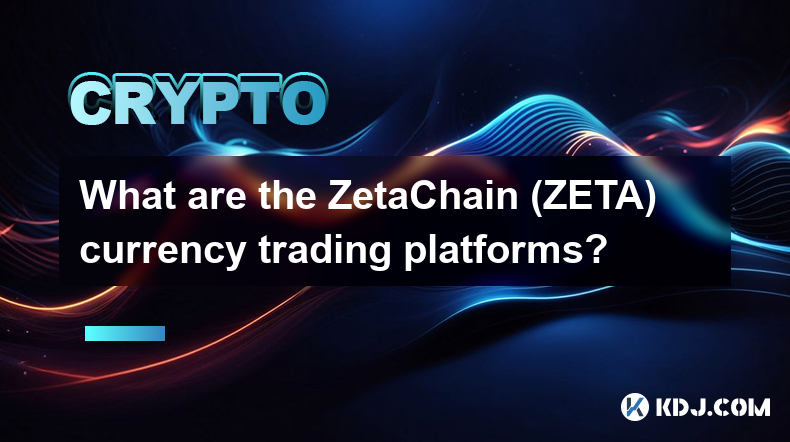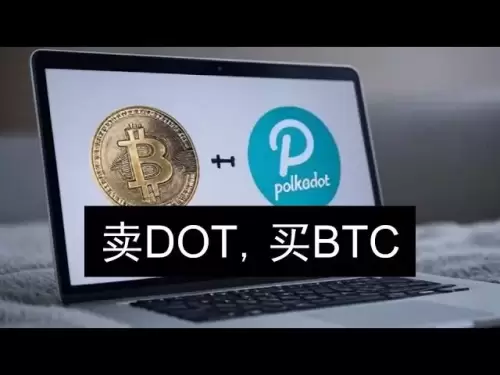-
 Bitcoin
Bitcoin $105,048.4691
-0.06% -
 Ethereum
Ethereum $2,516.5338
-0.68% -
 Tether USDt
Tether USDt $1.0003
-0.01% -
 XRP
XRP $2.1555
-0.75% -
 BNB
BNB $646.7647
-0.56% -
 Solana
Solana $144.9482
-0.60% -
 USDC
USDC $1.0002
0.03% -
 Dogecoin
Dogecoin $0.1745
-1.34% -
 TRON
TRON $0.2718
0.93% -
 Cardano
Cardano $0.6245
-1.59% -
 Hyperliquid
Hyperliquid $39.9395
-5.62% -
 Sui
Sui $2.9594
-2.14% -
 Bitcoin Cash
Bitcoin Cash $438.8805
1.32% -
 Chainlink
Chainlink $13.0731
-0.59% -
 UNUS SED LEO
UNUS SED LEO $9.2570
2.27% -
 Stellar
Stellar $0.2556
-1.51% -
 Avalanche
Avalanche $18.8320
-1.75% -
 Toncoin
Toncoin $2.9496
-2.52% -
 Shiba Inu
Shiba Inu $0.0...01191
-1.80% -
 Litecoin
Litecoin $85.2835
-1.58% -
 Hedera
Hedera $0.1528
-4.12% -
 Polkadot
Polkadot $3.7642
-0.98% -
 Ethena USDe
Ethena USDe $1.0003
-0.02% -
 Monero
Monero $317.0616
0.89% -
 Dai
Dai $0.9999
-0.01% -
 Bitget Token
Bitget Token $4.5052
-0.63% -
 Pepe
Pepe $0.0...01105
-0.67% -
 Pi
Pi $0.6087
4.51% -
 Uniswap
Uniswap $7.1679
-2.17% -
 Aave
Aave $271.1797
-1.70%
What are the ZetaChain (ZETA) currency trading platforms?
ZETA, the native token of ZetaChain, a cross-chain interoperability protocol, can be traded on reputable exchanges like Binance, KuCoin, and Huobi Global, offering liquidity and accessibility for users.
Dec 23, 2024 at 06:32 pm

Key Points:
- ZetaChain (ZETA) is a cross-chain interoperability protocol that connects different blockchain networks.
- ZETA is the native token of the ZetaChain network and is used for gas fees, staking, and governance.
- ZETA is traded on several cryptocurrency exchanges, providing users with liquidity and accessibility.
ZetaChain Currency Trading Platforms:
- Binance: Binance is the largest cryptocurrency exchange by trading volume and offers a wide range of cryptocurrencies, including ZETA. It provides users with a secure and reliable platform to buy, sell, and trade ZETA.
- KuCoin: KuCoin is another popular cryptocurrency exchange with a large user base and a wide selection of cryptocurrencies. It offers spot trading, margin trading, and futures trading for ZETA.
- Huobi Global: Huobi Global is a well-established cryptocurrency exchange with a strong presence in the Asian market. It offers spot trading and margin trading for ZETA.
- OKX: OKX is a renowned cryptocurrency exchange with a wide range of services, including spot trading, derivatives trading, and staking. It offers trading for ZETA as well.
- Bitfinex: Bitfinex is a veteran cryptocurrency exchange known for its advanced trading features and institutional-grade security. It offers spot trading and margin trading for ZETA.
How to Trade ZETA:
- Create an Account: Register for an account on a reputable cryptocurrency exchange that supports ZETA trading. Provide personal information, complete KYC procedures, and enable two-factor authentication for security.
- Fund Your Account: Deposit funds into your exchange account using supported payment methods such as bank transfer, wire transfer, or credit/debit cards.
- Find the ZETA Trading Pair: Navigate to the exchange's trading interface and select the ZETA trading pair you wish to trade, such as ZETA/USDT or ZETA/BTC.
- Place an Order: Choose the type of order you want to place (market, limit, stop-limit) and specify the amount of ZETA you want to buy or sell.
- Review and Confirm: Carefully review the order details and confirm the transaction. Your order will be executed based on the market conditions and your specified parameters.
- Monitor Your Trade: Once the order is placed, you can monitor its status in the exchange's trading interface. You can also set up alerts to notify you about price changes or order executions.
- Withdraw Your ZETA: Once you have traded ZETA and realized your gains or losses, you can withdraw your ZETA to your private wallet for safekeeping. Withdrawals may take some time to process, depending on the exchange and network conditions.
FAQs:
What is the purpose of ZETA?
- ZETA is the native token of the ZetaChain network and is used for gas fees, staking, and governance.
Which exchange is the best for trading ZETA?
- The best exchange for trading ZETA depends on your specific needs and preferences. Binance, KuCoin, Huobi Global, OKX, and Bitfinex are all reputable exchanges that offer ZETA trading.
How secure is it to trade ZETA on these exchanges?
- The exchanges mentioned above implement robust security measures to protect user funds, including SSL encryption, two-factor authentication, and cold storage of assets.
What are the fees associated with trading ZETA?
- Trading fees vary across exchanges. Check the fee schedules of the respective exchanges to determine the specific fees for ZETA trading.
Where can I store ZETA?
- You can store ZETA on the exchanges where you trade it or in a private wallet that supports ZETA. Hardware wallets provide additional security for storing your ZETA.
Disclaimer:info@kdj.com
The information provided is not trading advice. kdj.com does not assume any responsibility for any investments made based on the information provided in this article. Cryptocurrencies are highly volatile and it is highly recommended that you invest with caution after thorough research!
If you believe that the content used on this website infringes your copyright, please contact us immediately (info@kdj.com) and we will delete it promptly.
- Naira Marginally Appreciates Against the US Dollar in the Nigerian Autonomous Foreign Exchange Market (NAFEX)
- 2025-06-15 17:35:11
- Defying Expectations, ALPACA Token Surges 422% After Binance Delisting
- 2025-06-15 17:35:11
- Pi Network (PI) Price Prediction: Will the Token Bounce Back From Its Recent 80% Drop?
- 2025-06-15 17:30:11
- Conflux Token (CFX) will host an AMA on X featuring Hive3 on May 1st
- 2025-06-15 17:30:11
- Bitcoin Shows Signs of Maturity as Price Volatility Drops to 52-Week Lows
- 2025-06-15 17:25:16
- Sui (SUI) Price Prediction 2025-2030: Can This New Layer-1 Blockchain Dominate the Next Generation of Crypto Technology?
- 2025-06-15 17:25:16
Related knowledge

How to customize USDT TRC20 mining fees? Flexible adjustment tutorial
Jun 13,2025 at 01:42am
Understanding USDT TRC20 Mining FeesMining fees on the TRON (TRC20) network are essential for processing transactions. Unlike Bitcoin or Ethereum, where miners directly validate transactions, TRON uses a delegated proof-of-stake (DPoS) mechanism. However, users still need to pay bandwidth and energy fees, which are collectively referred to as 'mining fe...

USDT TRC20 transaction is stuck? Solution summary
Jun 14,2025 at 11:15pm
Understanding USDT TRC20 TransactionsWhen users mention that a USDT TRC20 transaction is stuck, they typically refer to a situation where the transfer of Tether (USDT) on the TRON blockchain has not been confirmed for an extended period. This issue may arise due to various reasons such as network congestion, insufficient transaction fees, or wallet-rela...

How to cancel USDT TRC20 unconfirmed transactions? Operation guide
Jun 13,2025 at 11:01pm
Understanding USDT TRC20 Unconfirmed TransactionsWhen dealing with USDT TRC20 transactions, it’s crucial to understand what an unconfirmed transaction means. An unconfirmed transaction is one that has been broadcasted to the blockchain network but hasn’t yet been included in a block. This typically occurs due to low transaction fees or network congestio...

What to do if USDT TRC20 transfers are congested? Speed up trading skills
Jun 13,2025 at 09:56am
Understanding USDT TRC20 Transfer CongestionWhen transferring USDT TRC20, users may occasionally experience delays or congestion. This typically occurs due to network overload on the TRON blockchain, which hosts the TRC20 version of Tether. Unlike the ERC20 variant (which runs on Ethereum), TRC20 transactions are generally faster and cheaper, but during...

The relationship between USDT TRC20 and TRON chain: technical background analysis
Jun 12,2025 at 01:28pm
What is USDT TRC20?USDT TRC20 refers to the Tether (USDT) token issued on the TRON blockchain using the TRC-20 standard. Unlike the more commonly known ERC-20 version of USDT (which runs on Ethereum), the TRC-20 variant leverages the TRON network's infrastructure for faster and cheaper transactions. The emergence of this version came as part of Tether’s...

How to monitor large USDT TRC20 transfers? Tracking tool recommendation
Jun 12,2025 at 06:49pm
Understanding USDT TRC20 TransfersTether (USDT) is one of the most widely used stablecoins in the cryptocurrency ecosystem. It exists on multiple blockchains, including TRON (TRC20). The TRC20 version of USDT operates on the TRON network and offers faster transaction speeds and lower fees compared to its ERC-20 counterpart on Ethereum. When discussing l...

How to customize USDT TRC20 mining fees? Flexible adjustment tutorial
Jun 13,2025 at 01:42am
Understanding USDT TRC20 Mining FeesMining fees on the TRON (TRC20) network are essential for processing transactions. Unlike Bitcoin or Ethereum, where miners directly validate transactions, TRON uses a delegated proof-of-stake (DPoS) mechanism. However, users still need to pay bandwidth and energy fees, which are collectively referred to as 'mining fe...

USDT TRC20 transaction is stuck? Solution summary
Jun 14,2025 at 11:15pm
Understanding USDT TRC20 TransactionsWhen users mention that a USDT TRC20 transaction is stuck, they typically refer to a situation where the transfer of Tether (USDT) on the TRON blockchain has not been confirmed for an extended period. This issue may arise due to various reasons such as network congestion, insufficient transaction fees, or wallet-rela...

How to cancel USDT TRC20 unconfirmed transactions? Operation guide
Jun 13,2025 at 11:01pm
Understanding USDT TRC20 Unconfirmed TransactionsWhen dealing with USDT TRC20 transactions, it’s crucial to understand what an unconfirmed transaction means. An unconfirmed transaction is one that has been broadcasted to the blockchain network but hasn’t yet been included in a block. This typically occurs due to low transaction fees or network congestio...

What to do if USDT TRC20 transfers are congested? Speed up trading skills
Jun 13,2025 at 09:56am
Understanding USDT TRC20 Transfer CongestionWhen transferring USDT TRC20, users may occasionally experience delays or congestion. This typically occurs due to network overload on the TRON blockchain, which hosts the TRC20 version of Tether. Unlike the ERC20 variant (which runs on Ethereum), TRC20 transactions are generally faster and cheaper, but during...

The relationship between USDT TRC20 and TRON chain: technical background analysis
Jun 12,2025 at 01:28pm
What is USDT TRC20?USDT TRC20 refers to the Tether (USDT) token issued on the TRON blockchain using the TRC-20 standard. Unlike the more commonly known ERC-20 version of USDT (which runs on Ethereum), the TRC-20 variant leverages the TRON network's infrastructure for faster and cheaper transactions. The emergence of this version came as part of Tether’s...

How to monitor large USDT TRC20 transfers? Tracking tool recommendation
Jun 12,2025 at 06:49pm
Understanding USDT TRC20 TransfersTether (USDT) is one of the most widely used stablecoins in the cryptocurrency ecosystem. It exists on multiple blockchains, including TRON (TRC20). The TRC20 version of USDT operates on the TRON network and offers faster transaction speeds and lower fees compared to its ERC-20 counterpart on Ethereum. When discussing l...
See all articles

























































































